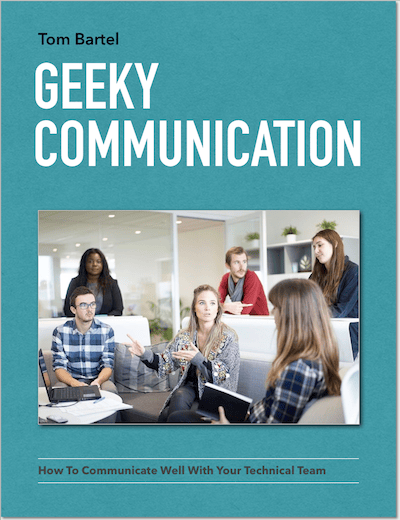TL;DR: The famous Still-Face Experiment from the 1970s demonstrates that children suffer when they are deprived of feedback and connectedness. It can serve as a reminder that these are basic human needs, and most people will not thrive without them. Managers especially should make sure that nobody on their team goes unnoticed.

A baby boy, just a few months old, is sitting opposite his mum, and wants to communicate with her. He makes some sounds, tries to make eye contact, smiles, babbles. Usually, his mum smiles back lovingly, tickles him, and shows how happy she is to have him. However, this time is different. This time, his mum is there, but she is not. She does not react to his looks. She does not react to his smile. She does not react to his babbling, or to him pointing at an object. Something is wrong.
He becomes worried, upset, alarmed. Is he not important to his mum any more? Has he done something wrong? She is still not smiling. She just looks, with empty eyes. Her face does not bear the slightest hint that she is noticing him. His worry increases and starts to turn into panic. The most important person in his life, who gives him food, safety, and comfort, is not reacting to his presence. He must be entirely irrelevant to the world!
He starts to cry. He tries to engage her, points to something behind her back to make her react. His hands move longingly towards his mum, as his voice implores her to give some sign of recognition. His desperation rises, and his crying becomes louder, until, finally, his mum comes back to life, takes him up, and comforts him.
Thank God, an experiment only
This might have been a scene from a famous experiment in developmental psychology called the Still Face Experiment. It was conducted in 1975 by Edward Tronick and colleagues, and shows how children crave connection, especially with their caregiver. Moreover, it shows how severely neglect affects children. The experiment went like this: Mothers were instructed by the researchers to first interact with their children as usual. Then, after a minute or so, they should turn away, turn back again, and, from then, not show any reaction whatsoever to their toddlers’ attempts to communicate with them. They should maintain a motionless, still face, which gave the experiment its name.
I think the still-face experiment is nothing less than brutal. Very insightful, but brutal. While I can be a pretty strict father and do not need to be best friends with my son all the time, I think I could never have done this to him, ever. In fact, in several cases, the original experiment had to be interrupted because the child’s despair became so great that the mother could not take it any longer. Have a look at this video, especially the ending, and see for yourself.
The experiment impressively demonstrates how the absence of any feedback is depriving and painful for humans. Infants are most affected by this. However, even as adults, the absence of attention and feedback affects us negatively, and if we cannot seem to get any of it, we become inventive: Some people will complain loudly, some will become obtrusive and force themselves on others, others will get a special haircut or wear flashy clothes.
We, as humans, need to know that we matter. We need to know that we have an effect on the rest of the world. That the world would not be quite the same without us. Otherwise, we will become worried, demotivated, sarcastic, and careless. In the video linked above, the child turns away at some point. Neglected children give up at some point, and accept that they have no influence. In the same way — maybe not physically, but mentally — adults will turn away from you if you turn away from them or “still-face” them in some other way.
Everyday still-facing
There are multiple ways of still-facing others that most of us are guilty of from time to time:
- Checking your phone or laptop while somebody is talking to you
- From the corner of your eye, watching the football match on TV while your partner is telling you about her troubles at work
- Not noticing or acknowledging how somebody does an outstanding job and saves the day for the entire team
- Not remembering somebody’s name — for the second or third time
- Cutting somebody short in a discussion like their opinion does not matter
There are many others, and they happen every day. One occurrence will not cause lasting damage, and probably two occurrences won’t, either. But if there is a repetitive pattern, expect the person’s engagement to go down significantly. The good news is that most of these everyday still-facing occurrences do not happen out of malice, but rather out of carelessness. Therefore, we can make a conscious effort to prevent them from happening.
If you want to curb still-facing in your environment, the most effective strategy is doing the opposite: Give people your undivided attention. Show them that you are listening. Make eye contact. Show them that you understand by nodding, asking questions, or rephrasing. Use their first name when you greet them. “Hello, Monica!” tells the other person unmistakably that you mean her, and her alone. A plain “Hello!” does not convey the same message. Using people’s first names will also make you more mindful of the people around you.
These are simple things that cost neither your time nor your money, and they can go a very long way. Everybody can do them, but as a manager, your leverage is higher in everything you do. If you give your undivided attention, this behaviour will spread, and people will take care of one another in a better way. If you move towards the still face regularly, people will disengage, and become careless and cold towards each other.
Neglected superstars

Maybe there are one or two superstars on your team, who work autonomously and consistently deliver high-quality work. They keep you updated now and then, but you never have to intervene. These people are a manager’s dream, right? You just let them do their thing, they take work off your shoulders, they never cause you any trouble, so you simply let them do their thing, and get out of their way otherwise. Right? Well, yes and no.
Of course, you should not micro-manage these employees (or any other employee, for that matter). However, if you take their excellent contributions for granted, never acknowledging their performance, then you might be shooting yourself in the foot very drastically. If you do not pay them any attention, then your superstars might find ways to get your attention. They might lower their standards and deliver sloppy work. They might start bending the rules and circumvent processes, because they feel special. They might subtly start looking for conflict with colleagues.
Or, they might — provided that they don’t leave — lose motivation and become disengaged, because they realize that, no matter what they do, you — their boss — is not noticing anyway. It does not matter whether they deliver world-class work or mediocre work, so, at some point, they will wonder why they keep going through all this pain when life could me much easier.
In order to keep your superstars performing at an excellent level, you better give them the attention and appreciation they deserve. Marcus Buckingham even goes as far as to say you should spend your most time with your best people, because it is them who have the greatest potential of becoming even better and performing at an even higher level.
Conclusion
The still-face experiment was done with small children. For them, not being able to cause a reaction in other people puts them in great distress and, over time, can even cause life-long brain damage. This should give us an idea of how important it is even for adults to get attention from their peers, and to validate that their existence matters. You can avoid moving towards the still face by giving people your undivided attention. Stop glancing at your phone or laptop when somebody is talking to you. Instead listen attentively, and show the other person that you understand. And if you have children: Never ever ignore them, because it is the cruelest thing you can possibly do.
Time investment
This blog post took me about 2.5 hours to compose.
Want to learn more on communication? Check this out:

Yours free: An ebook on effective communication!
Get Geeky Communication absolutely free, and learn about effective communication in a technical environment. Just enter your email address below. No spam ever, guaranteed.
 I'm Tom Bartel, Germany-based software developer, engineering manager, speaker, and human communication geek. More
I'm Tom Bartel, Germany-based software developer, engineering manager, speaker, and human communication geek. More